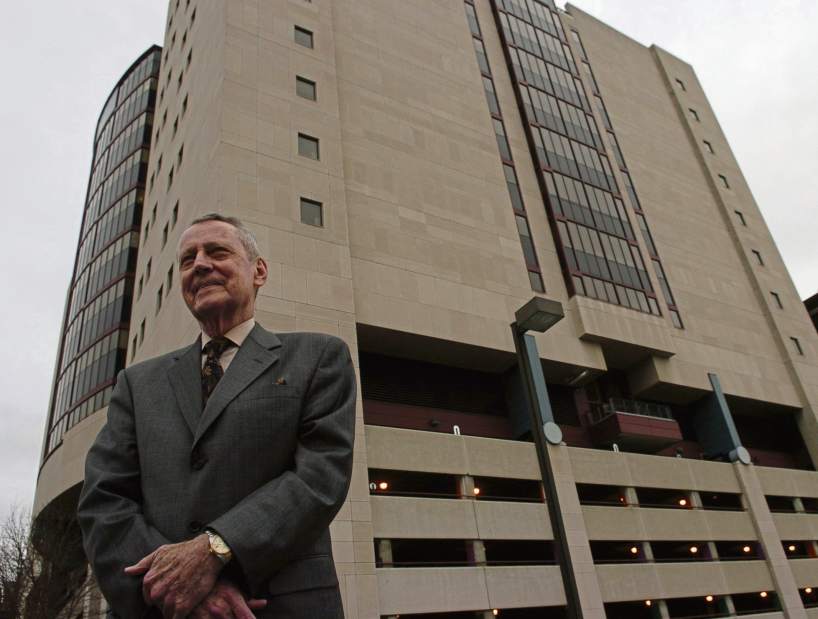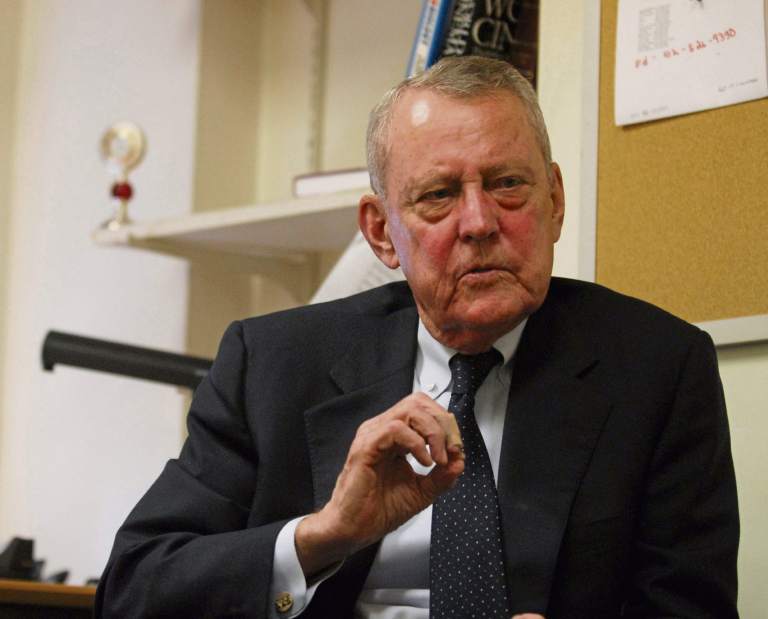Starzl's genius and conviction made him the wizard of organ transplantation
Two days after Super Bowl XL, Dr. Thomas Starzl called me in the newsroom.
“I don't believe we've had a chance to discuss the Steelers' victory,” he said.
“I know, Dr. Starzl, what a game,” was the only intelligent thing I could think to say — I know little about football.
For the next 10 minutes, I listened as the father of organ transplantation explained with incredible detail several questionable plays during the Steelers-Seahawks game on Feb. 5, 2006.
What struck me was not so much that he was “a bit uncomfortable with the Steelers' victory,” as he so delicately put it, but that he rationalized his argument with spectacular precision and conviction.
I immediately suspected it was the same thoughtfulness and attention to detail he employed during his time as the world's organ transplantation wizard.
Wow, I thought to myself, this guy really is a genius.
I knew Starzl, who died over the weekend at age 90, only in his later years.
During our first meeting, I thought he would intimidate me. He didn't. He reminded me of my grandfather, charming and articulate, and I couldn't stop him from talking — a reporter's dream. Perhaps because he was the son of a newspaper editor that he respected my craft. We clicked.
Was this the same legendary surgeon who was known to kick doctors out of his operating room if they made the smallest mistake? Had age mellowed Starzl?
Hardly. In subsequent meetings he showed why he was a medical shark, staunchly defending the position that donated livers should always go to the sickest patients. He was perturbed and deeply emotional when a Trib investigation uncovered the unthinkable — that some liver transplants were being performed on people who didn't need them.
“There are transplants being done that shouldn't be done,” he agreed. “You are going to the extreme end of replacing the engine when maybe all you have to do is do a spark plug.”
Yet the good doctor was aging. I checked on him occasionally, and, for a while, we spoke often by phone. One time at an awards banquet, he found fault with my attire, saying I shouldn't wear brown shoes with a blue suit.
He was always straightforward and brutally honest. The world's expert on hepatology and immunosuppression wanted to talk about Mozart; his wife, Joy; and their beloved dogs. His youngest was a Golden Retriever named Chooloo.
“She's very bright,” he told me when the puppy was about 8 weeks old. “But she has trouble holding her urine.”
One of my most memorable encounters with Starzl was an interview in which we talked about the death of perhaps his most beloved patient, college student Katy Miller. She died at age 21 after participating in a clinical trial intended to wean her from antirejection drugs. He said her death “changed my relationship to everything.”
Starzl spoke about Katy the way people talk about a son or daughter.
“In the course of a long and tough life doing difficult cases and being always right at the edge of tertiary care problems, you build layers of grief. But you can take those if they are thin. But when you have a deep rip in the fabric, that's a different matter. And Katy was like that.”
It was Starzl, the grandfather, who said those words.
It made me wonder what it would have been like to know Starzl, the star doctor.
I am, however, grateful to have known Starzl, the human being.
Luis Fábregas is editor of the Tribune-Review's digital Pittsburgh edition. Reach him at lfabregas@tribweb.com or on Twitter at @LuisTrib.



